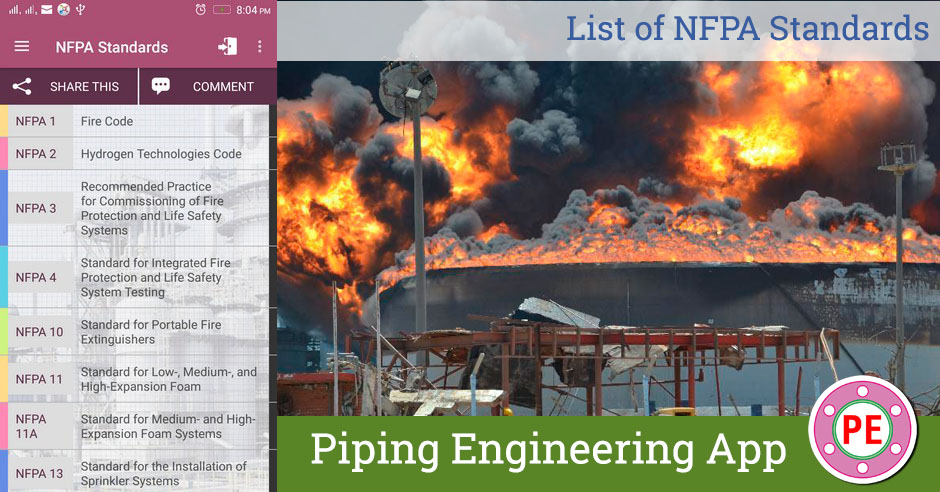Chemical and petrochemical industry handles corrosive and explosive chemicals. There is inherent danger of fire in these plants. It is essential to ensure all required safety measures are implemented in these plants. National Fire Protection Association of America has devised various standards for ensuring safety in these plants. Adhering to such standards is legally required. Here is a list of such standards.
| Sr. | Number | Title |
| 1 | NFPA 1 | Fire Code |
| 2 | NFPA 2 | Hydrogen Technologies Code |
| 3 | NFPA 3 | Recommended Practice for Commissioning of Fire Protection and Life Safety Systems |
| 4 | NFPA 4 | Standard for Integrated Fire Protection and Life Safety System Testing |
| 5 | NFPA 10 | Standard for Portable Fire Extinguishers |
| 6 | NFPA 11 | Standard for Low-, Medium-, and High-Expansion Foam |
| 7 | NFPA 11A | Standard for Medium- and High-Expansion Foam Systems |
| 8 | NFPA 13 | Standard for the Installation of Sprinkler Systems |
| 9 | NFPA 14 | Standard for the Installation of Standpipe and Hose Systems |
| 10 | NFPA 15 | Standard for Water Spray Fixed Systems for Fire Protection |
| 11 | NFPA 16 | Standard for the Installation of Foam-Water Sprinkler and Foam-Water Spray Systems |
| 12 | NFPA 18A | Standard on Water Additives for Fire Control and Vapor Mitigation |
| 13 | NFPA 20 | Standard for the Installation of Stationary Pumps for Fire Protection |
| 14 | NFPA 22 | Standard for Water Tanks for Private Fire Protection |
| 15 | NFPA 24 | Standard for the Installation of Private Fire Service Mains and Their Appurtenances |
| 16 | NFPA 25 | Standard for the Inspection, Testing, and Maintenance of Water-Based Fire Protection Systems |
| 17 | NFPA 30 | Flammable and Combustible Liquids Code |
[google-square-ad]

